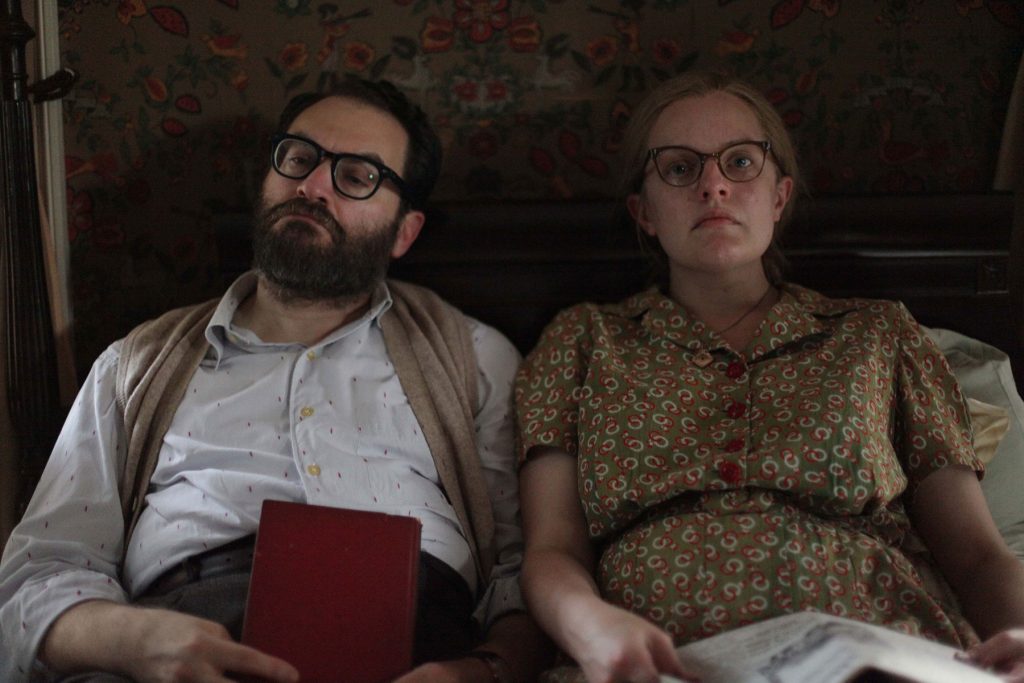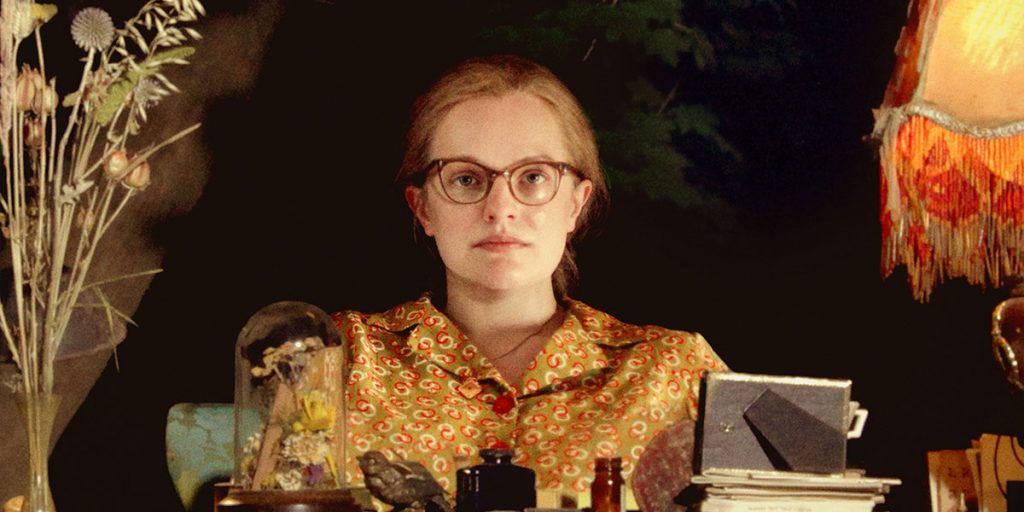Shirley sees Elisabeth Moss go big as the titular author in a horror-tinged take on Who’s Afraid of Virginia Woolf?, but it’s Michael Stuhlbarg who steals the show.
I want to begin this review with a prediction. Someday Michael Stuhlbarg (The Shape of Water) is going to win an Oscar in a leading role. Upon that win, audiences are going to go back and look upon his work with fresh eyes and finally begin to recognize him as one of the finest character actors of his era. From demonstrating wells of boundless empathy in Call Me by Your Name to a burst of nerdy glee in Hugo to the cold quiet menacing calculation on Boardwalk Empire, Stuhlbarg consistently steals the show in so many of his roles. I start with Stuhlbarg because it seems to me this is yet another Stuhlbarg performance of note that I worry will be sadly forgotten.
Elisabeth Moss (Her Smell) – one of the finest actors working today – goes very big here as legendary horror scribe Shirley Jackson. The film, largely a work of fiction, depicts the time surrounding Jackson’s drafting of 1951’s Hangsaman, though reconstitutes the action at some point towards the end of her life in the late 60s. Jackson is known to have battled with any number of emotional demons late in life, and the film focuses in on those tribulations. Moss gives the sort of scene dominating (one might say chewing) work that is frequently rewarded with Oscar nominations and screaming hosannas from the masses. It is clear to me that it shall overshadow the smarter, slyer work Michael Stuhlbarg is doing here in future discussion.
Stuhlbarg plays Jackson’s husband, Dr. Stanley Hyman, a professor at a local college. A character that could have easily been one-note cad becomes a fascinatingly flawed figure in Stuhlbarg’s hands. No real secret is made of his frequent dalliances with students and others in the faculty community, but it raises it a beneath-the-surface tension between the pair. The contradictions here are captivating: he is fascinated by his wife’s genius and frustrated by her instability; he is tantalized by her writing and enamored with its commercial potential. At times, he is casually cruel and condescending; at others, he is warm and supporting. Stuhlbarg treats each line reading like a meal – every single syllable resonates with intention. And he has been gifted a script filled with cutting bon mots into which he can tear.

Both husband and wife are prone to bouts of cruelty. Shirley’s central conflict sees the couple take on a pair of young boarders, an academic working for Dr. Hyman (The Perks of Being a Wallflower‘s Logan Lerman) and his pregnant wife (Assassination Nation‘s Odessa Young). The film’s strongest scenes see the couple scheming against their young wards for little more than personal enjoyment. Stuhlbarg’s acidic description of his young assistant’s dissertation – “terrifically competent… there is no excuse for that!” – is delivered with the sort of intellectual superiority and petulance that can only come from the worst corners of academia.
I have written a lot here, without actually touching much upon the film’s title character. I simply do not think Moss’ take on Shirley Jackson works. Not for one minute did she feel like an actual human being. She comes off less as flesh and blood than as some sort of overwrought supernatural entity, the sort most often found in pure horror or her own writing. She moans and groans, hissing at others and swallowing her lines in menace. Her physical movements appear to be less an emulation of an aging alcoholic writer than those of a classic cinema witch. You half expect her to lay a trail of candy behind each step to lure children to her over. I am quite certain this was director Josephine Decker (Madeline’s Madeline)’s intent – her camera moves in and out from Moss, playing near constant tricks with focus and angle. It makes for very busy direction that distracts from what Moss is trying to do with the character, and serves to amplify the least human elements of the performance.
Decker liberally dabbles in the occult here, from classic horror staging in some scenes to blood soaked premonitions in others. Perhaps my biggest problem is that I was far more invested in the actual human relationship of Shirley Jackson and Stanley Hyman. Their complex power dynamic, sapiosexual impulses, and pedantic pretensions would have made for a compelling two-hander.

